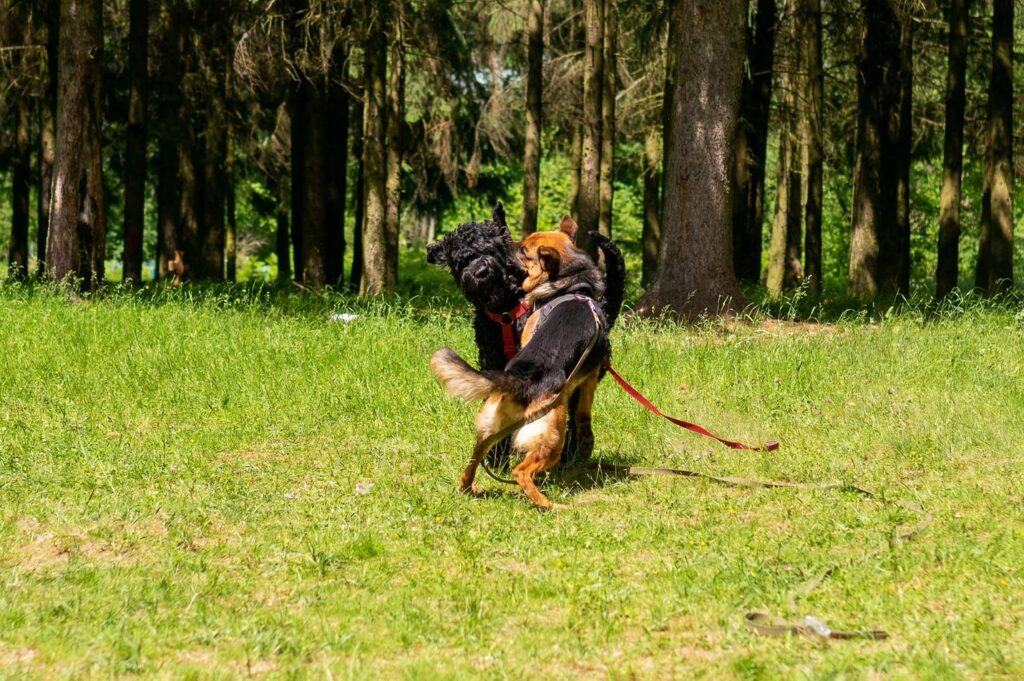What You Need to Know About Reactive Dogs

Reactive dogs are not necessarily aggressive. They are just responding to a stimulus in their environment. In this blog, we tackle about how to respond to reactive dogs and better understand them.
What does reactive dogs mean?
The term “reactive dog” is often used to describe a dog who is displaying aggression or fear, but this is not always the case. A reactive dog can be scared or frustrated, but they are not necessarily aggressive.
They have a tendency to react aggressively when they are startled or feel threatened. This is not a breed specific trait, but it can be more prevalent in some breeds. Some reactive dogs may be able to live with other animals if they are raised with them from a young age. However, many reactive dogs will need to live as an only pet in order for their owners to keep them safe.
If you have a reactive dog, it is important that you take the time to train them and teach them what behaviors are acceptable and which ones aren’t.
What causes reactivity in dogs?
Reactivity is generally confused with aggression. Genetics, lack of socialization, inadequate training to learn tone- control, a shocking experience, or a combination of these can beget reactivity, and fear is generally the driving force.
There are certain trigger for reactive dogs, such as – men with beards, headdresses, small children, or situations when the canine feels trapped on a leash. However, the best thing you can do is give him space.
If a reactive canine approaches you, don’t approach in an attempt to hail him as this may lead to a messy situation. However, try working with a trainer/coach that can analyze your furry friend and help address the cause.
Dog Reactivity Means
- I can’t handle the situation
- I feel nervous/scared/terrified
- Please let it go away
- I need personal space
- I don’t know what to do
- I’m in pain
Dog Reactivity Doesn’t Mean
- I am aggressive
- I’m not loveable
- I don’t understand and listen to you
- I’m creating a situation
- You need to punish or abuse me
- I will get over my traumas fast

How to help Reactive Dogs?
Having a reactive dog is not easy! It makes socializing and going out pretty hard – especially when your furry friend starts barking, lunging or growling at people and other furry friends alike.
There are ways where you can help calm down your canines and keep them focused on you!
1. Routine Building
A simple but effective routine, helps ease your dogs and keep them focused in stressful situations, they actually crave routine – from you waking up in the morning, putting your shoes on, taking the leash and bringing them out. Once they get the hang of it you can slowly introduce them more and more to the public areas, like the park.
2. Socialization
Do not isolate your reactive dogs! They will tend to be oblivious of their surrounding.
Frequent exposure can help them conquer their reactivity by making it normal and less unusual to meet other dogs – but this have to be under a strict and controlled exposure.
3. Mental Exercise
Besides physical exercise, it is also important to train them mentally and help their state of mind.
You can try this by making them sniff a couple of treats, and hide them for your canine to track them.
Always giving your all to keep everyone safe around your reactive dog is hard work, but with patience and help your dog can work out of his reactivity. Do not give up – you can always seek from the professionals!
Another option is to look at online dog training courses, we have used this online course for reactive dogs and it got great results
If you are looking for a dog trainer in Dubai to help you with dog reactivity, make sure you read our blog on What to know when looking for a dog trainer in UAE
For more furry destinations, latest blogs, events, and providers you can stay updated by following us on Instagram and signing up for our newsletters.


